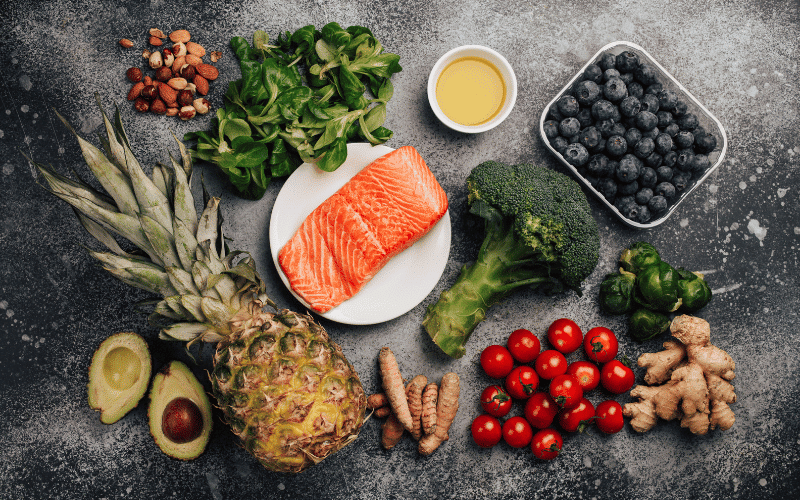Frequently Asked Questions about Anti-Inflammatory Foods

Why is it important to include anti-inflammatory foods in your diet?
Including anti-inflammatory foods in your diet is essential because chronic inflammation has been linked to numerous health issues such as heart disease, arthritis, diabetes, and even cancer. Consuming anti-inflammatory foods can help reduce inflammation in the body, support overall health, and potentially lower the risk of developing these chronic diseases.
How can I incorporate more anti-inflammatory foods into my daily meals?
You can incorporate more anti-inflammatory foods into your daily meals by choosing a variety of colorful fruits and vegetables, whole grains, lean proteins, and healthy fats. Experiment with new recipes and food combinations to keep your diet interesting and varied. Snack on nuts and seeds, add spices like turmeric and ginger to your dishes, and include oily fish like salmon in your meal plans.
Can anti-inflammatory foods help with weight loss?
Yes, many anti-inflammatory foods can support weight loss due to their high nutrient content, fiber, and healthy fats. These foods can help you feel fuller for longer, reducing overall calorie intake. Additionally, reducing inflammation in the body may improve metabolism and make weight loss more manageable.
Are there any side effects of consuming too many anti-inflammatory foods?
While consuming anti-inflammatory foods is generally safe and beneficial, it’s essential to maintain a balanced and varied diet. Overconsumption of specific nutrients or food groups can lead to imbalances and potential health issues. As always, moderation is key, and it’s essential to consult with a healthcare professional if you have concerns about your diet or specific health conditions.
Are there any supplements I can take to help reduce inflammation?
There are various supplements available that may help reduce inflammation, such as fish oil (for omega-3 fatty acids), turmeric (for curcumin), and ginger (for gingerol). However, it’s crucial to consult with a healthcare professional before starting any new supplement regimen, as they can guide you on appropriate dosages and potential interactions with medications or health conditions. It’s also important to remember that supplements should not replace a healthy and balanced diet rich in anti-inflammatory foods.
Conclusion: Embrace Anti-Inflammatory Foods for a Healthier Lifestyle
Incorporating a variety of anti-inflammatory foods into your diet is a proactive approach to improving your overall health and well-being. By choosing nutrient-rich fruits, vegetables, whole grains, lean proteins, and healthy fats, you can help reduce inflammation in your body, which in turn may lower the risk of developing chronic diseases.
The top 28 anti-inflammatory foods listed in this article provide you with a great starting point to create a balanced and diverse diet. By including these foods in your daily meals, you can enjoy delicious flavors while supporting your body’s natural ability to fight inflammation.
Remember to always consult with a healthcare professional if you have concerns about your diet or specific health conditions. By taking a comprehensive approach to your health, including diet, exercise, and stress management, you can create a lifestyle that supports optimal well-being and long-term health.